Ambassador: “Israeli-led investments in Cyprus are now reaching unprecedented levels”
07:00 - 10 September 2023

With the Cyprus-Israel relationship probably being better than it has ever been, it seemed like the perfect time to offer the Ambassador of Israel to Cyprus an opportunity to present the current state of trade between the two nations and the prospects for closer cooperation in the energy sector, and to tell us what valuable lessons Cyprus can learn from Israel’s tremendous success as a tech hub and a ‘startup nation’.
Although temperatures had been high earlier in the day, a light afternoon breeze was carrying the enticing and mouth-watering aroma of sizzling steaks around the garden in which the Israeli Ambassador was chatting to his guests. It appeared that congratulations were in order – not for the succulent steaks (that would come later) but because it had just been revealed that Globe Invest Ltd, the Cyprus-registered and headquartered single-family office and investment holding company of Israeli billionaire investor Teddy Sagi, had made a public offer to take over Best of the Best plc (BOTB) for £45.3 million. The move, announced on the London Stock Exchange (LSE), follows the successful completion of Teddy Sagi Group’s public offer for Kape Technologies Plc, valuing Kape at $1.6 billion. The public offer for BOTB is expected to be successful, following the irrevocable commitment expressed by certain shareholders to support it. Eurobank Cyprus is financing the acquisition of BOTB with £33 million, in line with the requirements of the UK’s City Code on Takeovers and Mergers. As Antigoni Fakonti informed the other guests, “The novelty of this transaction is that we have Eurobank doing the financing, which is the first time a Cypriot bank is doing the cash confirmation for a public offer in London.”
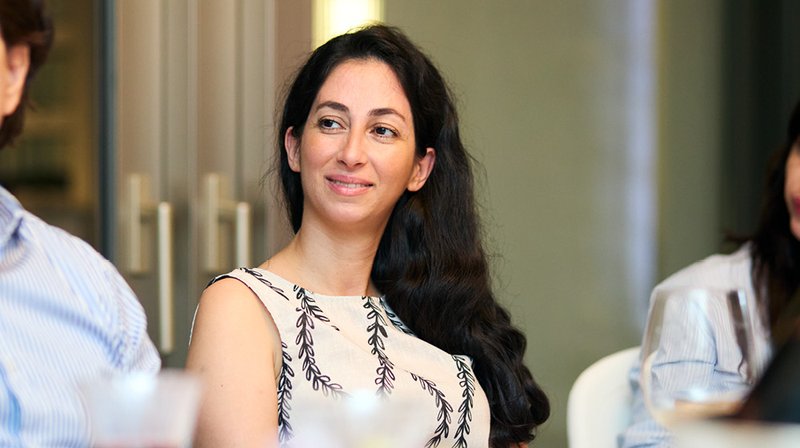
Antigoni Fakonti
Cyprus-Israel trade relations
The discussion then turned to current projects that are the result of the friendship and cooperation between the two countries and the trade relations between the two. “Traditionally, commercial ties between Israel and Cyprus have been very close but, in recent years, they have flourished with Israeli-led investments in Cyprus now reaching unprecedented levels,” said the visibly pleased Ambassador Oren Anolik. “Actually,” he went on, “I consider some of them to be of a strategic nature and of great importance to the Cypriot economy. The Cyprus-Israel joint venture, which was awarded the Larnaca port and marina project – a €1 billion investment and the biggest ever made in the country – is one such example. And, of course, there are many more investments in other important sectors of the Cypriot economy, such as tourism, hotels and real estate.”
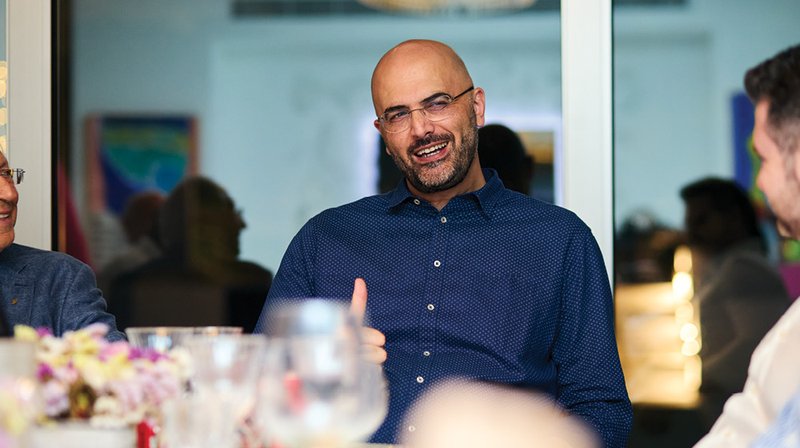
Ambassador Oren Anolik
Ambassador Anolik then noted the fact that numerous companies from Israel have also set up offices and operations in Cyprus. “The proximity of Cyprus to our country, the professionalism, ‘value for money’ and safety factors, as well as our friendly relations are among the important reasons for this,” he said, noting that Israeli investors view Cyprus as a gateway and a good place in which to invest and do business. “Israel has made a large contribution to the Cypriot economy and is now a major trading partner,” he told the gathering. “Looking forward, I think it is evident that Israel has given a ‘vote of confidence’ to Cyprus. This will continue, I believe, as more Israeli companies and investors look to Cyprus for opportunities, domestically and regionally. I see our business relations evolving into a sort of a strategic alliance and a ‘win-win’ situation for both sides.”
Antigoni Fakonti and Nick Nicolaou made a point of mentioning that Greece is now catching up with Cyprus, when it comes to doing business with Israel, while Andreas N. Gregoriou lightened the mood by commenting that he loves doing business with Israel, as the two are also connected by their common sense of humour. This proved to be entirely true as everybody laughed!
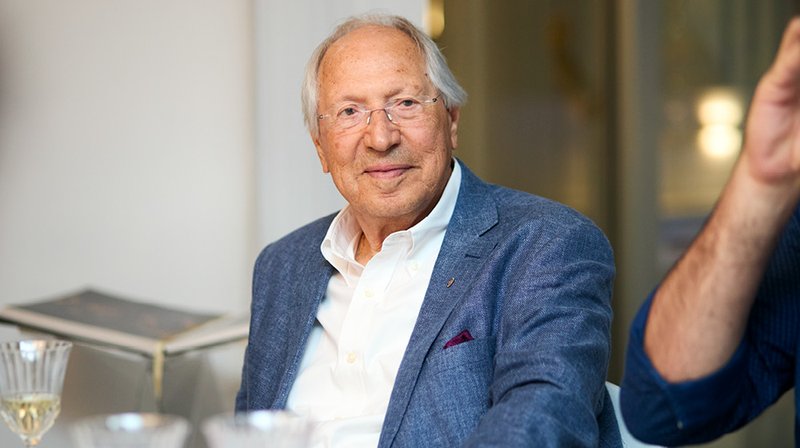
Andreas N. Gregoriou
“The outlook is very promising, with new sectors such as CleanTech offering opportunities as well,” Ambassador Anolik continued. “Although climate change is creating challenges, especially for our region, it is at the same time creating an opportunity that both countries should embrace. CleanTech is just one example. There are plenty more ‘techs’: FinTech, MedTech, EdTech, AgriTech and so on. These are all fields of possible cooperation and synergy with great potential. The list is long and the only limit would seem to be our imagination. Israel can put technologies and innovation on the table while Cyprus offers excellent services and access to the EU market, thus creating fertile ground for collaboration.”
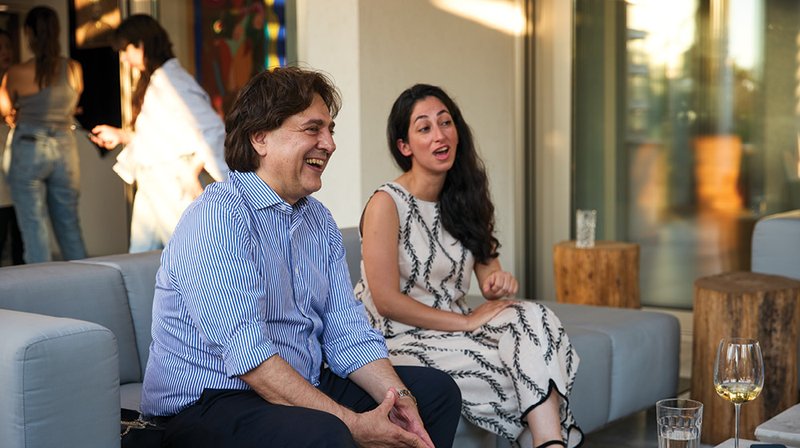
Nick Nicolaou
Energy and beyond
The Ambassador noted how, “Energy has been instrumental in bringing the two countries closer together, as both understood its strategic value,” and everyone agreed that energy has indeed become one of the key issues shaping strategic socio-political agendas around the world.
“NewMed Energy, a Delek Group subsidiary, is a partner in the consortium that owns the rights to the Aphrodite gas field,” he said. “At the same time, other projects such as the Euro-Asia Interconnector, which will connect the electricity grids of Israel and Cyprus and end their energy isolation, have the strong support of both governments. The two countries are currently exploring ways of collaborating on projects that will enable the Eastern Mediterranean region to play a role in supplying Europe with energy, be it natural gas in the short and medium term or hydrogen in the long term.”
At this point, dinner was served. Having taken their seats, the guests were presented with delicious macaroni and cheese, roast potatoes, salads and finally the perfectly-cooked steaks – from rare to well-done, according to each one’s stated preference.
During the meal, the conversation continued, from energy cooperation in the context of the eight-country Eastern Mediterranean Gas Forum (EMGF) to which both countries are strongly committed, to cooperation in the field of renewable energy, with an emphasis on specific sectors such as large-scale energy storage. “Beyond energy,” the Ambassador, opined, “the prospects are vast. There are great possibilities for collaboration in the years to come in a variety of sectors, including cybersecurity, Artificial Intelligence, alternative proteins and even film co-productions.”
Popular sectors for investment
At present, investments by Israelis in Cyprus are in a broad range of sectors, such as energy, tourism, real estate, general trade and healthcare, while Cypriots investing in Israel favour the services sector. “At least two big law offices now have a presence in Israel,” the Ambassador noted, “and my vision is to see more Cypriot investments in Israel and Cypriot companies becoming actively involved in the Israeli economy. And let us not forget that, in addition to this, there is the trilateral cooperation with Greece, which further enhances such prospects. Moreover, the peace agreements between Israel and Egypt and Jordan, as well as the Abraham Accords – treaties normalising diplomatic relations between Israel, the UAE, Bahrain and Morocco – can create even more opportunities.”
As the discussion turned towards current affairs, Ofir Chudin posed a question about the ongoing war in Ukraine and when it finally comes to an end. “What do you think is going to happen?” he asked. “Are Russian or Ukrainian companies going to invest in Cyprus?”
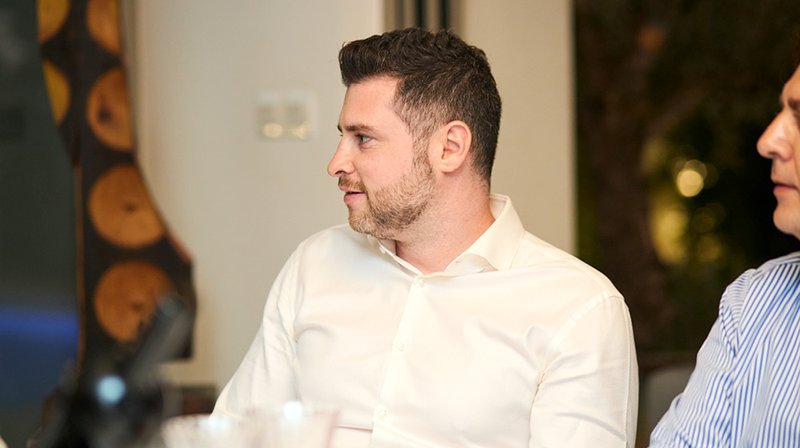
Ofir Chudin
Demetris Fessas was quick to point out that Cyprus has always been an attractive destination for those wishing to find a safe business haven, adding that the island can also benefit from the likely ‘feelgood’ factor, which will play a major role in how people who have been isolated and battered by the gloom and devastation of war will wish to invest in and spend on their wellbeing.
However, when it comes to investment and building business relationships of trust, Chudin added that a dark cloud still hangs over Cyprus, in the form of its tarnished international reputation. By way of response, Antigoni Fakonti said that this should be high on the local media agenda, “if we really want the Cyprus brand to be enhanced,” and she used as an example the response of the Israeli media to UK and US sanctions on some Cypriot companies. “It was noted that, although the sanctioned companies were Cypriot-owned, many assets and transactions were UK-related. So, if the UK authorities, banks, land registry and whatever had permitted such transactions and were the ones benefitting financially from them, why should the burden fall only on Cyprus?”
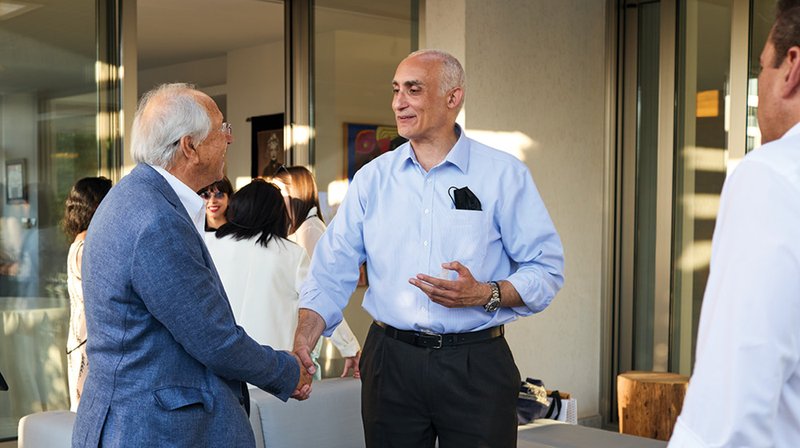
Demetris Fessas
What can we learn from Israel’s success as a tech hub?
“Can Cyprus become another ‘startup nation’?” the Ambassador was asked. “What can the island learn from Israel with regard to this goal?”
He answered both questions by saying, “Advanced technologies are changing our lives and Israel is at the forefront of these technological developments. It is leading the way in areas that are currently at the top of the worldwide agenda and are extremely important. Early on, Israel understood how critical it was to transform its economy and to focus on innovation. It created a national strategy so that investments and creativity from startups and research centres could have a worldwide impact. Being able to commercialize all these ideas and products was another reason for Israel’s success.”
He paused, before adding, “This does not mean that Cyprus should ‘copy-paste’ Israel’s experience. But I think it can learn from it and, as I have said many times, when it comes to Cyprus and Israel, cooperation on innovation and technology is a ‘win-win’ situation. As close neighbours, we have a clear need to link our two eco-systems, since many of the challenges we face are cross-border. A common problem, for example, is water shortage. Israel has combated this by using desalination technology and drip irrigation, invented in Israel. Both technologies have been used in Cyprus for decades. Israel is also a world leader in wastewater recycling and water treatment – its expertise can not only be put to the test here but new solutions to common issues can be addressed jointly, with the input of the academic and business communities of both countries.”
The moment for coffee and dessert was approaching and soon everyone was enjoying a deliciously rich chocolate cake. It was time for some concluding remarks by the Ambassador of Israel, who returned to the topic of bilateral cooperation and how Cyprus can learn from Israel’s experiences: “Our cooperation will inspire future generations, while creating the foundations for young entrepreneurs from both countries to work together and create the strong bonds that will sustain what we are building now,” he said.
“Cross-cultural interactions are important,” he stressed. “There are some things that cannot be otherwise grasped: for example, viewing failure as a necessary step on the road to success. An innovation ecosystem does not become successful without a series of failures that are seen as a learning experience. One cannot push the boundaries without taking risks and striving to boldly go where no man (or woman) has gone before. This is the attitude that helped create Israel’s brand as the startup nation.”
(Photos by TASPHO)
(This article was first published in The Cyprus Journal of Wealth Management. To view the article click here)
